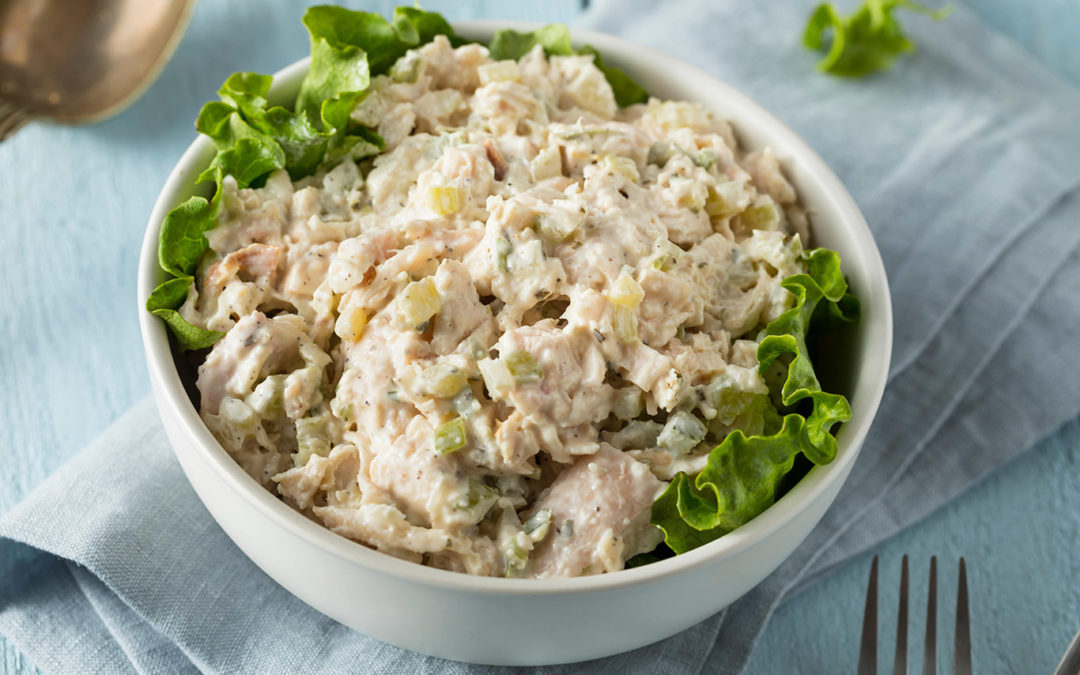In November 2018, a Houston-based food manufacturer, Ron’s Home Style Foods, came under scrutiny from the Food Safety and Inspection Service (FSIS). A routine inspection revealed the establishment had produced and released almost 7,000 pounds of ready-to-eat chicken salad contaminated with Listeria monocytogenes—a bacteria that causes listeriosis—to retail locations in Texas.
Listeriosis is a serious infection that typically occurs in people with compromised immune systems, the elderly and pregnant women and their newborns. The infection can cause flu-like symptoms, such as fever, muscle aches, headache and diarrhea. In pregnant women, listeriosis may lead to miscarriages, premature births and stillbirths.
Luckily, Ron’s Home Style Foods acted fast and withdrew their contaminated product from the market. Consequently, there were no confirmed reports of listeriosis from consuming the adulterated chicken salad.
Does the incident at Ron’s Home Style Foods mean you should stay clear of chicken salad and similar deli products? Is it time to discontinue these products all together? Not necessarily. Food recalls are a relatively rare occurrence. In 2021, there were 270 reported beverage and food recalls, which in the overall scheme of food safety is far from wide-spread, pandemic-level numbers.
However, if you do consume a food or beverage item that’s later recalled and you subsequently developed a food-borne illness, you may be eligible to pursue compensation for your damages by filing a product liability claim against the company responsible for releasing the contaminated product.
What Is Product Liability?
Product liability is a legal doctrine that gives you the right to file a personal injury claim or lawsuit against a person or organization that released a defective consumer product. The entity responsible for releasing the faulty product can be held liable for your injuries or illness even if they weren’t aware their product was defective.
Product liability doesn’t just pertain to food and beverage manufacturers. Any company that makes their products available to the public can be held responsible if they cause harm.
What Must I Prove in a Product Liability Case?
In general, there are three things you must prove in a product liability case:
- The product was inherently defective
- The defect caused your injury or illness
- You used or consumed the product exactly as it was intended to be used or consumed
For example, if you purchase a chicken salad from a local grocery store but don’t consume it until days or weeks after the expiration date, and you get sick, it’s unlikely your product liability claim will be successful. Ignoring explicit warnings about a product, like an expiration date, may negate your ability to successfully seek damages.
If a person is allergic to peanuts and suffers a life-threatening allergic reaction to something they ate, they likely won’t have a valid case unless they can prove the food manufacturer neglected to include peanuts in the product’s list of ingredients. A manufacturer might be liable for allergic reactions if their product doesn’t contain nuts, but they failed to disclose the food was made or packaged on machines that made or packaged some other product containing nuts.
If you develop a food-borne disease from pathogens like Salmonella, E. coli or Listeria monocytogenes and your illness can be linked to a recalled food or beverage you recently consumed, you will likely have a compelling product liability case.
Evidence in a Product Liability Case
Your product liability case is only as strong as the evidence you’ve gathered to support it. To prove a product has caused your injuries or illness, you’ll need to preserve the following pieces of evidence:
- A receipt proving you purchased the defective or contaminated product
- Medical records pertaining to your injury or illness
- The product itself and any packaging or manuals that came with it
- Evidence of product recalls and similar claims or lawsuits
- Pay stubs or tax returns showing lost wages resulting from your injury or illness
Do I Need a Product Liability Attorney to Help with My Case?
You aren’t obligated to hire a product liability attorney, but keep in mind there are many benefits to working with a knowledgeable lawyer. Product liability cases tend to be complicated and getting compensation for your damages is rarely easy or straightforward. The at-fault party’s insurance company and defense team may go to great lengths to challenge your claim or have it dismissed, leaving your stuck with medical bills and lost income.
At the Weycer Law Firm, our trusted product liability attorneys will work hard to help you achieve a fair recovery in your case.
We offer legal representation to clients in Houston and across the state of Texas. To discuss your case for free, call (713) 668-4545.

